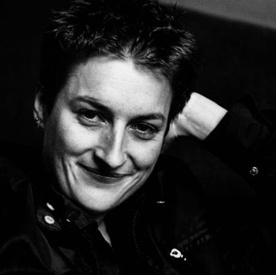A Quote by Sarah Weinman
The quality I appreciated most about Grafton was her loyalty. She stuck with 'Kinsey Millhone' and the alphabet series conceit for her entire career but did not allow herself to stagnate as a writer. Kinsey's first-person narrative gradually made room for other, third-person perspectives.
Related Quotes
Because no, I didn’t push her away. I didn’t add to her pain or do anything to hurt her. Instead, I left her alone in that room. The only person who might’ve been able to reach out and save her from herself. To pull her back from wherever she was heading. I did what she asked and I left. When I should have stayed.
I want to be remembered as a woman who represented God but was controversial, stood by what she believed and wouldn't allow other people's opinions of her to manipulate her directions. As someone who helped others, loved others deeply even if they tried to hurt her, was there for people when she could be, and ultimately made everything she did about God and not just about herself.
But what I kept wondering about is this: that first second when she felt her skirt burning, what did she think? Before she knew it was candles, did she think she'd done it herself? With the amazing turns of her hips, and the warmth of the music inside her, did she believe, for even one glorious second, that her passion had arrived?
She was the first person on either side of her family to go to college, and she held herself to insanely high standards. She worried a lot about whether she was good enough. It was surprising to see how relieved she seemed whenever I told her how amazing she was. I wanted her to feel strong and free. She was beautiful when she was free.
A part of a healthy conscience is being able to confront consciencelessness. When you teach your daughter, explicitly or by passive rejection, that she must ignore her outrage, that she must be kind and accepting to the point of not defending herself or other people, that she must not rock the boat for any reason, you are NOT strengthening her posocial sense, you are damaging it-and the first person she will stop protecting is herself.





























